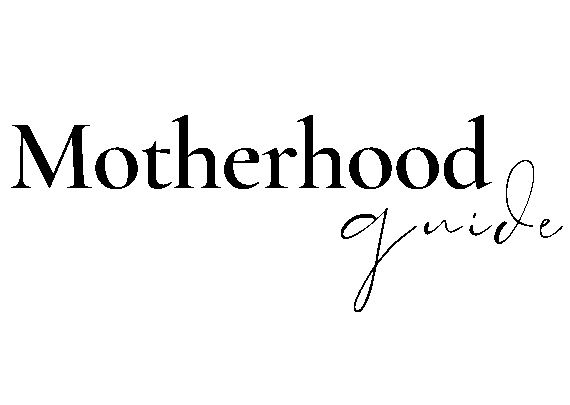I don’t like my child’s partner, and I’m not sure how to handle it without causing tension or distance. When your adult child introduces you to someone who doesn’t quite sit right with you, whether due to personality clashes, values misalignments, or simply an intangible “off” feeling, things can get tricky. Should you speak up? Or do you keep your thoughts to yourself and trust your child’s judgment? Is it necessary to like your adult child’s partner in the first place?
These questions aren’t just about personal discomfort. They tap into complex dynamics involving family bonds, autonomy, and respect. So, how do you navigate these sometimes murky waters without sinking the relationship? Here’s how to behave, what to say, and why it’s more important than you might think to approach the situation with care.
Understand Why It’s Sensitive
At its core, this issue isn’t simply about personal preference. It’s about relationships, deep, personal, and often long-term ones. Your adult child’s partner is now a part of their life, and potentially, your family’s life. Psychologically, it’s natural to feel protective of your child, and any perceived threat to their happiness or well-being can feel like an affront.
Research shows that the more involved a parent is in their child’s life, the harder it can be to accept new romantic partners, particularly if those partners challenge existing family dynamics. A study by The Journal of Social and Personal Relationships revealed that parents are often sensitive to perceived differences in values, lifestyles, and backgrounds when assessing a partner. And for many parents, it feels like an emotional betrayal when the child’s partner doesn’t meet personal expectations.
But, as the dynamics shift, it’s important to remember: You’re not losing your child, you’re gaining someone new. Learning to manage this adjustment can help both you and your child thrive in your respective relationships.
for many parents, it feels like an emotional betrayal when the child’s partner doesn’t meet personal expectations.
Is It Okay That I Don’t Like My Child’s Partner?
This is a difficult, yet essential, question. Let’s be clear: You don’t have to like your adult child’s partner. Liking someone is an emotional response that’s based on a complex set of factors, many of which are outside your control. In fact, studies show that parental disapproval of a partner can sometimes be instinctive and driven by subconscious factors, such as unfamiliarity or a lack of compatibility with your own values. However, disliking their partner doesn’t mean you need to openly reject them or create conflict.
The key here is to ask yourself why you don’t like them. Is it their behavior, their treatment of your child, or a gut feeling that something isn’t right? In many cases, concerns about a partner’s character or compatibility may be valid, but it’s also worth considering whether those concerns stem from generational differences, cultural shifts, or your own fears of change.
When and How to Speak Up
If you feel strongly that your child’s partner is not a good match, the question becomes: Should you speak up? And if so, when is the right time?
Psychologists recommend waiting for the right moment, one that’s grounded in concern rather than judgment. The opening line here is crucial: You want to express your thoughts in a way that shows respect for your child’s autonomy while also making them aware of your feelings. The best time to speak up is when you have a calm, private moment with your child. This isn’t about “intervening” in their relationship, but about opening up a conversation to discuss any worries you may have.
Start with something non-accusatory, like:
- “I’ve been thinking about the relationship, and I just want to make sure you’re happy and being treated well.”
- “I’ve noticed a few things that made me feel concerned, and I’d like to share them with you. How are you feeling about the relationship?”
- “I’m not sure I fully understand your partner, but I’m open to learning more. How do you feel about them?”
This approach doesn’t put your child on the defensive but instead invites them to share their own feelings. You’re offering a conversation, not an ultimatum. The goal is to listen as much as you talk and to maintain an open, empathetic tone. The key is supporting your adult child in making their own decisions, rather than imposing your own judgments.
Practical Tips for Managing the I Don’t Like My Child’s Partner Situation
Even if you don’t like your child’s partner, maintaining a healthy family dynamic is possible. Here are a few practical tips to help you navigate the relationship:
- Focus on the Big Picture: Remember, your adult child is now an independent individual with their own life choices. Your relationship with them shouldn’t be contingent on the partner they choose. Stay connected with your child and nurture the relationship you share, separate from the dynamics with their partner.
- Set Boundaries: If you feel uncomfortable with your child’s partner in certain situations, it’s okay to set boundaries. For example, you might ask for certain topics to be avoided during family gatherings or suggest that your interactions with their partner remain polite and cordial, rather than overly personal.
- Maintain Respect: Disagreement doesn’t need to turn into disrespect. Try to engage with their partner civilly, even if you’re not particularly fond of them. After all, your child chose them for a reason. Show respect to their decision, even if you don’t understand it.
- Communicate Your Concerns Thoughtfully: If you truly believe your child’s partner is toxic or harmful to them, it’s important to communicate that in a calm, constructive manner. You might say, “I’m worried about how your partner’s behavior affects you,” rather than making sweeping statements about the person’s character.
When to Let It Go and Accept
It’s vital to realize that, in most cases, your child’s relationship with their partner is theirs, not yours. While it’s completely normal to feel protective or uncertain about a new relationship, it’s also important to learn when to step back. If your child seems happy and their partner isn’t mistreating them, your best course of action is often to simply accept the situation. Your role now is to be a supportive, steady presence in their life, not to dictate their romantic choices.

You don’t have to love or even like your child’s partner, but you do need to respect their autonomy and the decisions they make. If something feels off or you have genuine concerns, it’s okay to address them, but always approach the situation with sensitivity, care, and respect. The goal should always be to nurture the relationship with your child, without causing unnecessary conflict. And ultimately, it’s about recognising that your child’s happiness and growth are what matter most.
Remember, this journey isn’t just about what’s comfortable for you, it’s about navigating the complexity of family dynamics and ensuring that everyone, including yourself, feels heard, valued, and respected.












